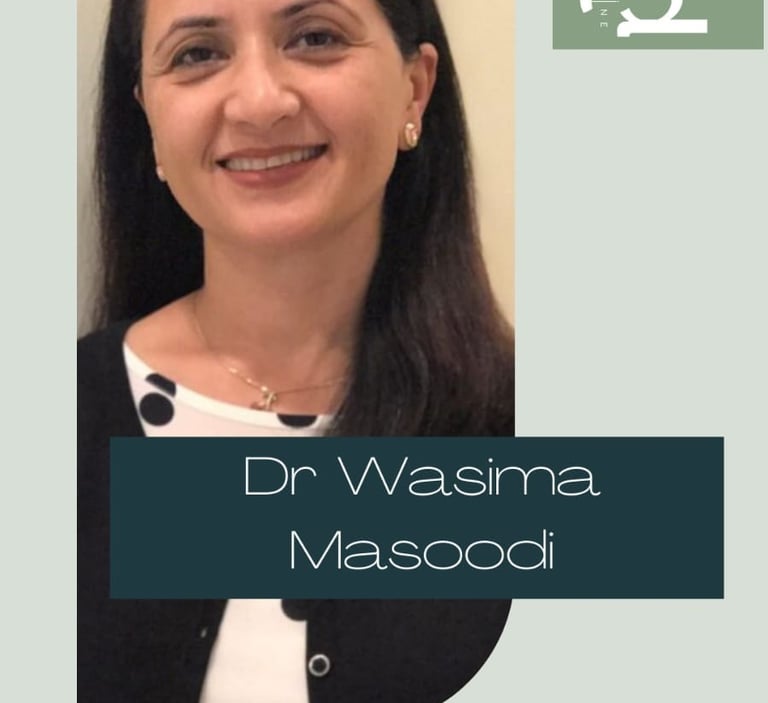Infertility Series Update: PCOD and Infertility – Insights from Dr. Wasima Masoodi
FEATUREDHEALTH


This video marks the latest installment in our special series dedicated to understanding and addressing the rising issue of infertility in Kasheer. In this session, Dr. Wasima Masoodi—an esteemed endocrinologist and director at Endocrine Care Specialists in California, as well as an active member of the KASHMER group leading the PCOS project—shares her expert insights on the complex relationship between PCOD (polycystic ovarian disease/syndrome) and infertility.

A Series Dedicated to Reproductive Health in Kasheer
The Infertility Series is a dedicated initiative aimed at raising awareness and fostering dialogue around the growing challenges of infertility in Kasheer. By bringing together experts from both local and global communities, the series seeks to explore various facets of infertility, offer up-to-date medical insights, and suggest actionable strategies for prevention and treatment.
Session Overview: Focus on PCOD and Infertility
In this latest video session, Dr. Wasima Masoodi dives deep into the critical issues surrounding PCOD—a condition that affects a significant number of women and is a leading cause of infertility. She outlines the following key points:
1. Understanding PCOD/PCOS
Definition and Prevalence:
Dr. Masoodi explains that PCOD (or PCOS) is a hormonal disorder common among women of reproductive age. It is characterized by irregular menstrual cycles, excess androgen levels, and the presence of multiple ovarian cysts.Impact on Fertility:
The condition can interfere with ovulation, making it one of the major contributors to infertility. Dr. Masoodi highlights how even subtle imbalances can lead to significant reproductive challenges.
2. Diagnosis and Early Intervention
Diagnostic Criteria:
A comprehensive overview of the criteria used to diagnose PCOS is provided, including clinical evaluation, ultrasound imaging, and hormonal assays.Importance of Early Diagnosis:
Early identification of PCOD is crucial for timely management and can greatly improve the outcomes for women struggling with infertility.
3. Treatment Modalities and Management Strategies
Medical Management:
Dr. Masoodi reviews various treatment options available for PCOD—from lifestyle modifications and dietary changes to pharmacological interventions. These include medications that regulate menstrual cycles, reduce insulin resistance, and manage excess androgen levels.Holistic and Personalized Care:
Emphasizing a patient-centered approach, she discusses the importance of tailoring treatment strategies to the individual, taking into account the unique hormonal profile and reproductive goals of each patient.Role of Multidisciplinary Collaboration:
As a member of the KASHMER group, Dr. Masoodi advocates for integrated care that involves endocrinologists, reproductive specialists, and nutritionists to address the multifaceted nature of PCOS.
4. Future Directions and Research
Ongoing Projects and Innovations:
The session touches on current research initiatives and the promising advancements in the treatment of PCOD. Dr. Masoodi shares insights on emerging therapies and the importance of continued research to better understand the underlying mechanisms of the condition.Community Outreach and Education:
The expert stresses the need for public awareness campaigns to educate women on the symptoms of PCOD and the importance of regular health check-ups.
Implications for Kasheer and Beyond
Dr. Masoodi’s session is particularly impactful for the Kashmiri community, where rising infertility rates call for urgent attention. Her discussion emphasizes:
Empowerment Through Knowledge:
By understanding the nuances of PCOD, women can take proactive steps towards early diagnosis and effective management.Bridging Global Expertise and Local Needs:
The session represents a critical collaboration between global experts and local stakeholders, ensuring that the latest scientific insights are accessible to those in Kasheer.Encouraging Multi-Faceted Care:
Addressing infertility is not solely about medical treatment—it’s about holistic care that includes lifestyle interventions, psychological support, and community engagement.
Conclusion
Dr. Wasima Masoodi’s update in the Infertility Series provides a comprehensive, expert-driven overview of PCOD and its role in infertility. Her insights not only clarify the medical aspects of the condition but also underline the broader need for integrated, patient-centered care. For women in Kasheer and elsewhere facing the challenges of infertility, this session is a beacon of hope—reinforcing that informed, timely intervention can make all the difference.
As part of our ongoing series, we will continue to bring you regular updates from leading experts. Keep sharing, keep supporting, and join us as we work together to address these critical reproductive health challenges.
